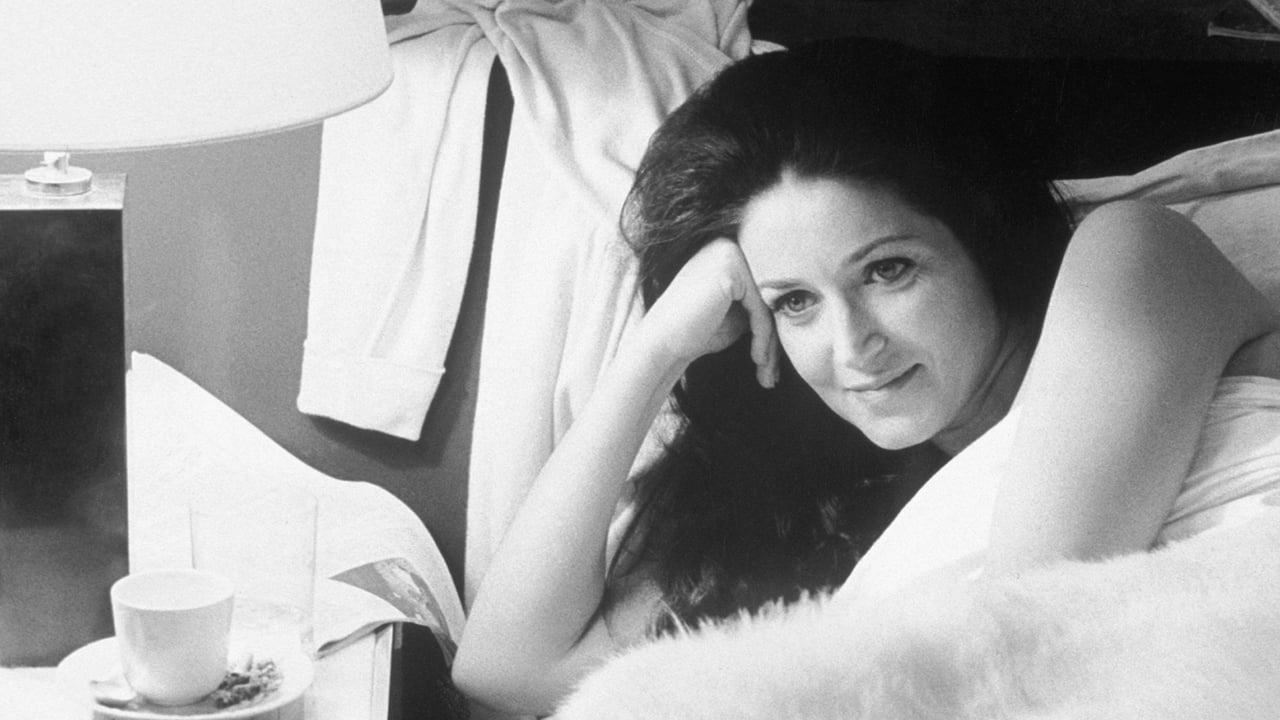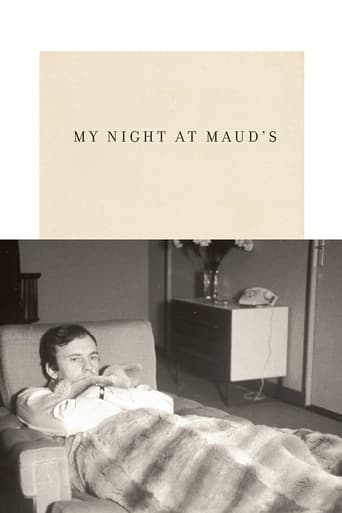



Very disappointed :(
It's hard to see any effort in the film. There's no comedy to speak of, no real drama and, worst of all.
View MoreOk... Let's be honest. It cannot be the best movie but is quite enjoyable. The movie has the potential to develop a great plot for future movies
View MoreThe movie turns out to be a little better than the average. Starting from a romantic formula often seen in the cinema, it ends in the most predictable (and somewhat bland) way.
View MoreThis is the third entry in Eric Rohmer's "Six Moral Tales" film series, following the charming romantic short "The Bakery Girl of Monceau" and the somewhat bland, but still well made and written, 55 minute film "Suzanne's Career". Out of the three "Moral Tales" that I've seen, "My Night at Maud's" is easily the best, and most mature. The first two, while fine films, seem more like warm ups to this film."My Night at Maud's" is a spectacular work of art, which mainly consists of the intelligent discussion that goes on in the apartment of a woman named Maud over the coarse of one night. Of course, plenty of other things happen as well, but most of the film takes place during this one long discussion. Joining Maud is the main character, Jean-Louis, a Catholic man who seems to be in love with a woman (named Françoise, who becomes more of a major character later in the film), but hides it from Maude and his Marxist friend Vidal.The film is an hour and 50 minutes of watching these wonderful characters talk and talk about various things, mainly things dealing with religion, love, etc. While a film almost entirely consisted of various characters chattering away may sound boring, it really isn't, mainly because the talking is so much fun (and really interesting) to listen to!The film is also beautiful to look at, with gorgeous, black and white cinematography that really enhances the pretty cold tone of the film.A really great piece of filmmaking!
View MoreI watched this film because I wanted to learn more about the French New Wave method of cinema, but I found myself very quickly drawn into the characters and the story itself. This is a painting of life with a palette that is almost complete, it so effortlessly portrays reality in it's most mundane and most beautiful at the same time. It sounds corny to say it, but it raises the everyday to the sublime. Don't get too distracted and bogged down by the French philosophy here, it turns out that is just a ruse, a sort of nervous tick that people are using to hide real feelings. I would say it's not's quite "Tokyo Story", but it's damn close.
View MoreNo, not the movie. I saw this movie for the first time when it was released in 1969 in Portugal. I went because everybody told me to go. The first person that told me to go was a janitor that worked for the university where I was studying. He told me something like: "This movie made me reconsider the values by which I have been ruling my life...". With several of my colleagues confirming the janitor's opinion about the sublimity of the work, I went. And left after 30 minutes. For the whole time I hoped that somebody would step in that apartment and held everybody at gun point. No, I didn't want to make it into a Rambo movie. I just wanted to give these people some REAL problems to worry and talk about. No, what I find interesting about this movie are the published comments. These are fun and actually give the movie an unexpected meaning that I missed when I saw it: It deeply touches the hearts of people that, like the characters, have no real problems or challenges in their lives! But, who am I to voice these opinions?
View MoreCertainly among Rohmer's better work due, more than anything else, to his using top actors - as it's actually one of the film-maker's more cerebral efforts; in fact, its relentless preoccupation with religion and morality makes it pretty heavy-going (as much, I'd say, as Bunuel's THE MILKY WAY [1969])! The plot, in itself, is pretty simple but - even in spite of rather murky black-and-white cinematography - it holds one's interest because the three main characters are so well written by Rohmer and enacted by Jean-Louis Trintignant (such a consummate performer that he could virtually adapt to the style of any director!), Francoise Fabian and Marie-Christine Barrault.Not being a great fan of Rohmer's, I opted to rent this one before deciding whether or not to buy Criterion's upcoming Box Set of his "Six Moral Tales" (of which this is the third) - even though I had previously watched LA COLLECTIONNEUSE (1971; actually shot in '67), which didn't impress me, and CLAIRE'S KNEE (1970), which I recall being quite good...
View More